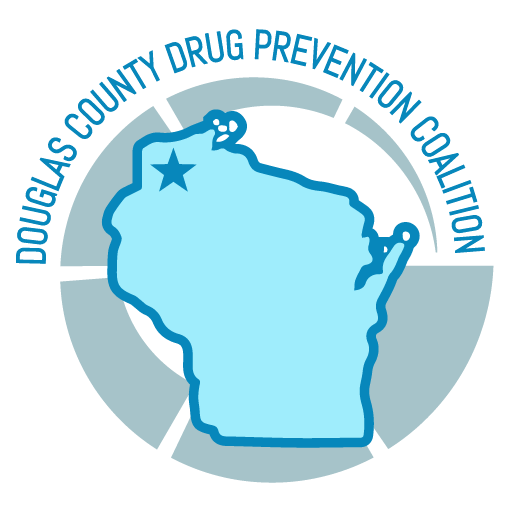The Truth About Drugs – What Every Teen and Parent Should Know
A Friendly, Informative Guide to Staying Safe, Aware, and Drug-Free in Douglas County
Why Knowing the Facts Matters
In today’s world, teens and families are exposed to more information—and misinformation—than ever before when it comes to drugs. From what’s seen on social media to what’s heard in school hallways, it can be hard to know what’s true. That’s why it’s so important to have clear, honest conversations about drugs and the risks they pose.
This guide is written for both teens and parents. Whether you’re a young person trying to make sense of what you’re hearing or a parent looking to protect and support your child, understanding the facts is the first step toward a healthy, drug-free life.
In Douglas County, we believe in the power of community, education, and hope. Let’s explore the truth together.
What Is a Drug?
At its simplest, a drug is any substance that changes how your body or mind works. Drugs can be legal (like alcohol and prescription medication) or illegal (like heroin or meth). Some drugs are used for medical reasons, but when misused, even those can become dangerous.
Drugs can fall into several categories:
Stimulants (like cocaine or Adderall): speed up your body’s systems.
Depressants (like alcohol or Xanax): slow your body down.
Hallucinogens (like LSD or mushrooms): change how you see or perceive things.
Opioids (like heroin or prescription painkillers): block pain but can be highly addictive.
Cannabis/Marijuana: often used recreationally, but it affects memory, attention, and judgment—especially in teens.
Common Myths vs. Facts
Let’s clear up some of the most common drug myths:
Myth #1: “Everyone is doing it.”
Fact: Most teens are not using drugs. According to national surveys, the majority of high school students report staying away from alcohol and drug use.
Myth #2: “Weed is harmless.”
Fact: Marijuana can negatively affect brain development, memory, and motivation—especially in teens whose brains are still developing into their 20s.
Myth #3: “Prescription drugs are safe if a doctor gave them to someone.”
Fact: Taking medication not prescribed to you can be just as dangerous as street drugs—and sometimes even more so.
Myth #4: “I can stop anytime I want.”
Fact: Many drugs are addictive, and quitting can be incredibly hard without help and support.
How Drugs Affect the Body and Brain
Teens Are Especially Vulnerable
The human brain doesn’t fully develop until about age 25. The prefrontal cortex, which is responsible for decision-making, impulse control, and judgment, is the last part to mature. When drugs are introduced during this critical time, they can cause lasting damage.
Short-Term Effects
Depending on the drug, short-term effects might include:
Impaired judgment
Memory loss
Anxiety or paranoia
Physical illness (nausea, dizziness, seizures)
Increased risk of accidents or risky behaviors
Long-Term Effects
Prolonged use can lead to:
Mental health issues (depression, anxiety, psychosis)
Physical dependency and withdrawal
Damage to the heart, liver, lungs, or brain
Problems at school, work, or with the law
Broken trust and relationships
Why Teens Try Drugs
Understanding the reasons behind drug use helps us address the root causes. Teens might try drugs because:
They’re curious or bored
They want to fit in or impress friends
They’re trying to cope with stress, anxiety, or trauma
They feel pressure to perform (sports, school)
They think it will help them relax or sleep
Knowing why is the first step to helping a teen avoid or overcome drug use.
What Parents Can Do
Parents are the first line of defense—and you matter more than you think. Even when it doesn’t seem like it, teens are listening.
Here are some ways to make a difference:
Start early and talk often: Age-appropriate conversations about drugs can begin in elementary school and evolve as your child grows.
Be open and nonjudgmental: Create a safe space where your teen feels comfortable talking to you about difficult topics.
Set clear expectations and boundaries: Let them know you care and that you expect them to stay drug-free.
Know the signs of use: Sudden behavior changes, secretiveness, dropping grades, and new friends can be red flags.
Be involved: Know your teen’s friends, monitor screen time, and stay engaged in their life.
How to Say “No” (Without Feeling Awkward)
Teens face real social pressure. Here are a few ways to say “no” that don’t have to feel weird or dramatic:
“Nah, I’ve got a game tomorrow and don’t want to mess it up.”
“I’m good, I don’t mess with that stuff.”
“I’ve got other plans.”
“Not my thing.”
Use humor to deflect and move on.
Practicing responses can actually help you feel more confident in the moment.
Real Stories: The Power of Speaking Up
“I started vaping because it seemed harmless. Then I was using weed and pills just to sleep. I didn’t think I had a problem until I tried to stop and couldn’t. Going to a recovery meeting saved me—I found people who really understood and didn’t judge me. It was the first time I felt hopeful.”
— Jasmine, 17, in recovery for 8 months
“We were a typical family. We didn’t see the signs until it was serious. Once we got help, we realized we weren’t alone. Recovery meetings, family therapy, and community support changed everything.”
— Tom, father of a teen in recovery
What to Do If You or Someone You Know Is Using
If You’re a Teen:
Talk to a trusted adult—parent, teacher, coach, counselor.
Reach out to a school social worker or nurse.
Look for local support groups (more on this in our recovery meetings post).
Don’t wait—getting help early makes a big difference.
If You’re a Parent:
Don’t panic or shame—approach with love, concern, and a desire to understand.
Educate yourself about the substance and its effects.
Talk to your pediatrician or family doctor.
Explore treatment options (covered in our treatment programs post).
Get support for yourself too—parent support groups can be incredibly helpful.
Drug Prevention in Douglas County
We’re proud to say Douglas County is committed to prevention, education, and recovery. Through school programs, youth events, and community resources, we’re working together to build a healthier future.
Some highlights:
School-based prevention programs and peer mentoring
Free community workshops for parents and caregivers
Drug-free events and activities for teens
Partnerships with local treatment providers and recovery programs
Check out our [Events Calendar] and [Local Resources page] for more!
Resources You Can Trust
Here are some trusted resources to learn more and get help:
SAMHSA (Substance Abuse and Mental Health Services Administration)
www.samhsa.gov – National helpline: 1-800-662-HELPNational Institute on Drug Abuse for Teens
www.teens.drugabuse.govPartnership to End Addiction
www.drugfree.orgDouglas County Local Help Line
(Insert local hotline or teen support line here)Local Recovery Meetings
(Covered in-depth in our next blog post!)
Conclusion: Knowledge Is Power
Drugs are everywhere in today’s world—but so is hope. With the right information, strong support systems, and open communication, teens and families in Douglas County can make safe, healthy, and positive choices.
Whether you’re a teen trying to navigate pressure or a parent trying to guide your child, remember: you’re not alone. There’s a community here that cares—and we’re building a better future together, one conversation at a time.
About Us
Serving all of Douglas County to provide education across the lifespan, improve community literacy about substance abuse and improve access to treatment for addiction.
- +(805) 498-4719
- Medplus@info.com
- 3421 Lesser Dr Newbury Park, CA 91320
Quick Links
About Us
Our Mission
Contact Us
Event Calendar
Success Stories
Projects
Dose of Reality
Drug Take Back
Small Talks
Tobacco is Changing
Recent news
- All Post
- Alcohol & Tobacco
- Drug Related Topics
- For Parents & Guardians
- For Youth



